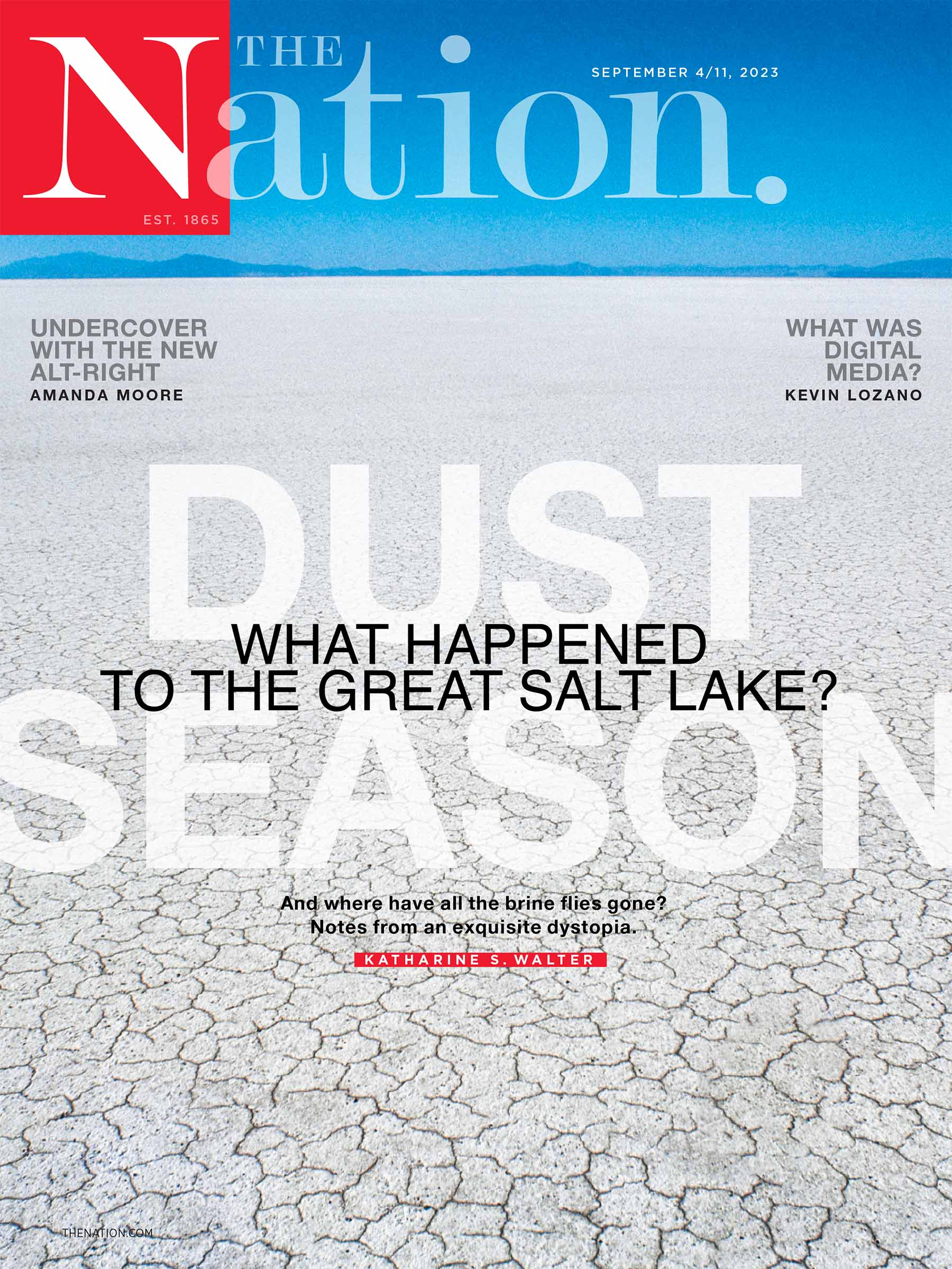Tens of Millions
The persistence of American poverty.
The Persistence of American Poverty
“We could afford to end poverty,” Matthew Desmond tells us. That we don’t is a choice.
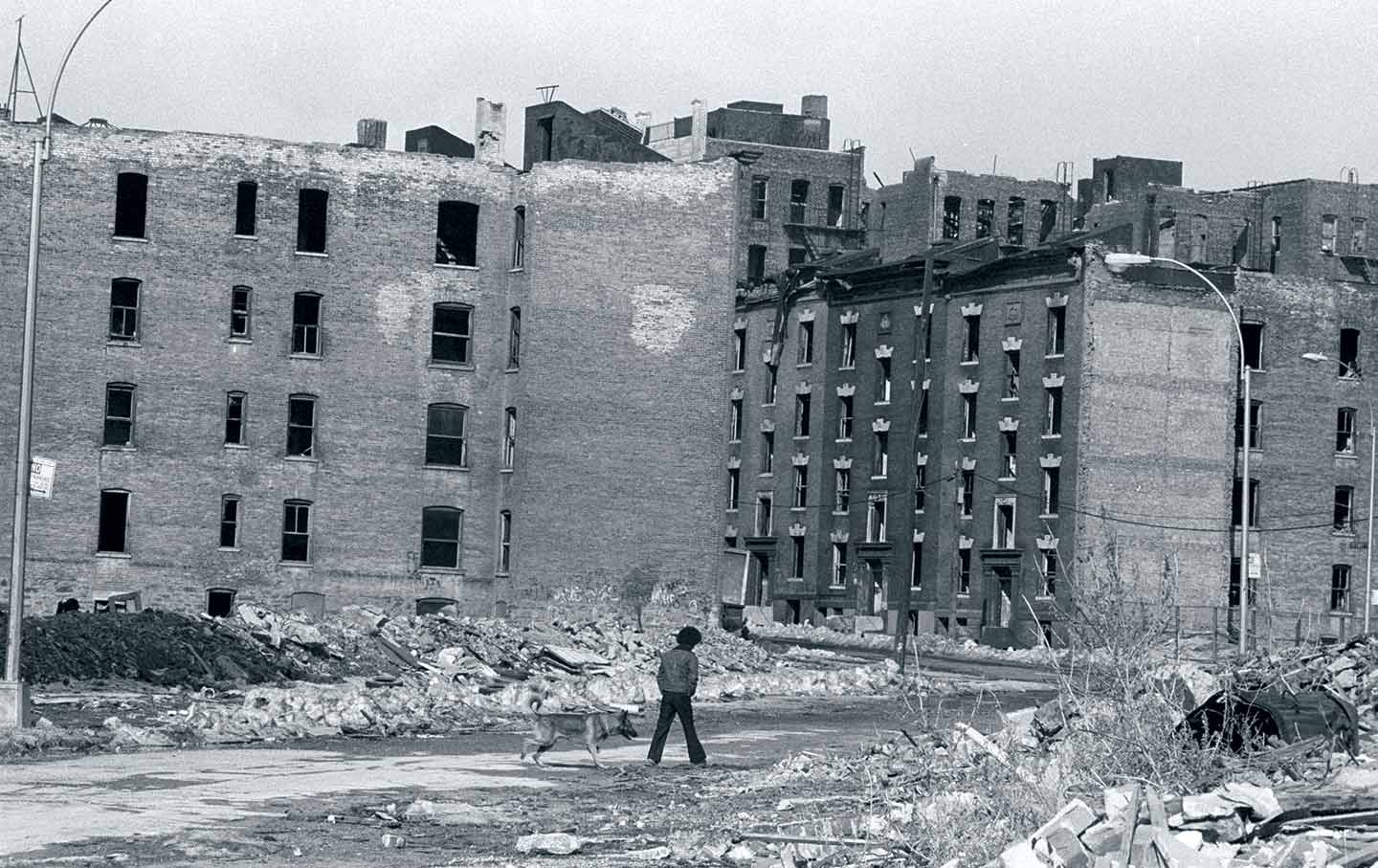
Early in my college teaching career, upon sharing an incidental detail of my biography—I was raised primarily by a single mother who worked as a home health aide—a colleague could barely hide her surprise: “You were raised by a single mom?” Yes, a tenured professor of history at Georgetown University was raised by a single mother. Like the few Americans who have experienced upward class mobility, I was able to find ways to cosplay middle-class status along the way. I learned how to fill out scholarship applications before I acquired a driver’s license. I budgeted my babysitting wages to cover school clothes and bus fare. I learned not to discuss too many details about my home life in front of people who were not like us. Today, my mother bristles at the idea that we were among the poor in America; as an immigrant from Haiti, she claims to know what real poverty looks and feels like. Yet in a nation as resource-rich as the United States, I wonder what she made of her experiences working multiple jobs that brought her constant back pain, with no union to appeal to when things got really bad. It wasn’t until I became a parent that I realized how taxing it must have been for her to rely on our city’s network of public health clinics and emergency rooms for immunizations and basic health care, and how much anxiety there must have been in knowing that what was needed for the monthly bills was greater than what was coming in.
Books in review
Poverty, by America
Buy this bookI thought a lot about my own past and present while reading Matthew Desmond’s new book, Poverty, by America. A MacArthur Fellow who is also the Maurice P. During Professor of Sociology at Princeton University, Desmond has dedicated his career to examining poverty. His previous book, Evicted, focused on one of the most devastating consequences of the 2008 financial crisis: the eviction of renters who already faced a paucity of affordable housing. In an ethnographic study of people in Milwaukee, Desmond recounted their personal struggles and, most important, the policy failures that had led to housing insecurity among a wide swath of Americans. For those who are lucky enough to be unfamiliar with the cruel practice of removing people and all their possessions from their homes or who are unaware of the profits made by exploiting those most desperate to find a place to live, Evicted was a revelation. In 2017, Desmond won a Pulitzer Prize for the book, and has found audiences in the housing policy world, as well as in popular media, as an expert on the struggle to achieve housing security.
In Poverty, by America, Desmond returns to many of the same questions, but from a different angle. Instead of ethnographic profiles of people struggling against systems that neglect and exploit the poor, he now takes aim at the ways in which poverty is considered in this country. Instead of focusing on the actions of the poor themselves, Poverty, by America seeks out the root causes of their plight. Poverty is not produced by the poor, Desmond insists, and so we must take into account “those of us living lives of privilege and plenty,” who too often think that we have little to do with the poverty of others.
Desmond’s scholarly focus is not only political but personal. He is unabashed in discussing how his own experience of growing up poor led him to the central questions in Poverty, by America. “After my father lost his job, the bank took our home, before it was all the rage, and we learned to do without that, too,” he writes. “Mostly I blamed Dad. But a part of me also wondered why this was our country’s answer to when a family fell on hard times.” These moments of memoir are few, but they are fundamental to Desmond’s argument that poverty persists because it is lucrative for everyone who doesn’t experience it themselves. The poor experience poverty—but it is the rest of us who help generate and sustain it.
In Poverty, by America, Desmond provides some of the history of how the nation has framed and understood the problem of poverty. In the late 19th century, the growth of cities by way of immigration and industrialization led to some of the most troubling aspects of poverty, especially overcrowded slum housing and labor exploitation. Yet who was responsible for dealing with this problem? The captains of industry, who underpaid their workers? The state, which sought to control and sometimes criminalize the poor? Or the local churches and community groups devoted to charity? At the time, piecemeal approaches to addressing poverty—almshouses, mutual aid societies, and settlement houses—failed to meet the challenge of keeping the poor fed, housed, and healthy.
The early 20th century introduced a wave of new approaches to addressing poverty. Many Progressives sought to improve the quality of urban life through the establishment of free kindergartens and the building of public parks. They believed in the spirit of reform, but their interventions on behalf of the poor were sometimes shaped by contempt and racism. The next major shift came as a result of the Great Depression, which brought state officials into the conversation about how to alleviate poverty, thus providing the draft for some of the most ambitious New Deal programs, which established the federal government’s key role in ending poverty.
With the Depression and the coming of World War II, liberals and reformers began to view the state as having more responsibility for providing its citizens with their most basic needs, but the specter of racism and ethnocentrism persisted, shaping accessibility to Social Security, direct cash aid, and food assistance. While the New Deal under Franklin Roosevelt’s administration emboldened labor and created new social safety nets, the political and social reforms of the era could only alleviate and ameliorate poverty; the notion of abolishing it had yet to come.
By the early 1960s, the discourse on poverty was being influenced by a White House that had ambitious goals to wage a “war” against it, as well as by a cohort of scholars from the fields of sociology, anthropology, and economics whose theories on the whys of economic inequality were beginning to inform the way that bureaucrats approached the hows of it. Building on an intellectual tradition of writers who explored the seeming puzzle of poverty in a country as rich as the United States, books like Michael Harrington’s The Other America (1962) and studies by the anthropologist Oscar Lewis found their way to the desks of government officials like Daniel Patrick Moynihan, then an assistant secretary of labor. If Lyndon Johnson’s Great Society was to end poverty, it would essentially have to “fix” the poor: This became the predominant message of those who stressed the importance, first and foremost, of addressing the “culture of poverty.” Labor unions and taxing the rich would not be among the tools for improving the conditions of America’s poor; rather, rules about family composition, calls for patriarchal households, and the maligning of single mothers would be the ideological instruments of change. The personalization of these policy matters, although not necessarily a new approach to poverty, would be more strictly and nefariously applied to the increasing numbers of people of color who were able to access state benefits after the passage of the Civil Rights Act of 1964. Poverty programs expanded throughout the 1960s, but the conventional wisdom on why people were poor came down to their individual choices—and, in turn, the poor were further marginalized and racialized, obscuring the number of white Americans who also accessed state benefits and entitlements, and redirecting the focus away from the larger labor market, banking system, and housing industry that maintained American inequality.
The United States, Desmond notes, is “the richest country on earth,” but the problem of poverty is so enormous that it affects Americans across a wide economic spectrum. Not all American poverty looks or feels the same, but the vulnerability of poor people to circumstances outside of their control keeps them from realizing economic security. “If America’s poor founded a country, that country would have a bigger population than Australia or Venezuela,” Desmond writes. “Almost one in nine Americans—including one in eight children—live in poverty. There are more than 38 million people living in the United States who cannot afford basic necessities, and more than 108 million getting by on $55,000 a year or less, many stuck in that space between poverty and security.” Notably, Desmond is not interested in simply documenting the statistics on the pervasiveness of poverty in the United States. He wants us to think about poverty in a different way in order to widen the net of accountability to fix it. On the right end of the political spectrum is the tedious talking point that “the poor are just lazy,” and therefore social policy should discipline them for their idleness and get them back to work. Meanwhile, although few self-described liberals would utter such a falsehood—and though many have since denounced Bill Clinton’s pernicious welfare “reforms” of the 1990s—well-heeled liberals still often fail to realize their own responsibility. Through their consumer choices to save money at all costs, many liberals as well as conservatives have come to depend on gig-economy industries. They have sometimes also played an active role in housing and school segregation, all in the name of doing what’s best for their families, even though they know that they are sustaining a regime that keeps the poor poor.
Desmond also takes liberals to task for holding on to the 1960s “culture of poverty” discourse that insists that poor people, through their behavior and individual choices, exacerbate their own suffering due to personal shortcomings. Rather than hew to the “culture of poverty” line, which liberals tend to share with the right-wing fluff of disingenuous screeds like J.D. Vance’s Hillbilly Elegy, Desmond wants them to focus on the catastrophic culture that poor people are forced to navigate in order to survive. In the United States, he writes, “poverty is the constant fear that it will get even worse.” If there is a culture that needs reforming, in Desmond’s eyes, it’s the culture of affluence that encourages the wealthy and the middle class to depend on government largesse, which feeds a machine of inequality that keeps many people poor for all of their lives. For Desmond, this culture is also born out of a set of material conditions—those related to how we work, how we consume, and how we distribute wealth. “We could afford to end poverty,” Desmond insists, but only “if we designed our welfare state to expand opportunity and not guard fortunes.”
The solution to not having enough money is to have more money; that is common sense. But in the United States, debates about poverty often devolve into who is most deserving of the money designated for people who don’t have enough, or even whether they deserve any money at all. In the midst of all of this upside-down logic, Desmond notes, anti-poverty activists often find themselves on the back foot. Attempting to locate the sources of American poverty tends to be a secondary concern. But for Desmond, to truly end poverty in the United States requires understanding its roots. For this reason, he spends a considerable part of the book providing an important corrective to the conventional thinking about the 1980s, which is often framed as a major turning point in the divestment of aid to the poor. “Throughout Reagan’s eight years in office,” Desmond writes, “antipoverty spending did not shrink.” Reagan’s budget cuts did not slash funding for unemployment insurance, food aid, and the other “programs that make up the American welfare state.” Outside of Medicaid, “we find that the federal investments in means-tested programs increased 130 percent between 1980 and 2018.”
But what Reagan and other conservatives did during this period was almost as bad. The anti-welfare rhetoric of the era provided fodder for future attacks on welfare; it also helped spread the baseless claims of rampant welfare fraud and enabled states to funnel federal welfare dollars into state infrastructure projects, abstinence-only education programs, and a number of other vanity projects that did nothing to support or relieve the poor, while also creating additional barriers for individuals and organizations attempting to access anti-poverty funds.
Popular
“swipe left below to view more authors”Swipe →Desmond concludes that one of the real issues with American poverty today is not just that we don’t have the right anti-poverty programs, but that we have marginalized and stigmatized poverty in a way that hinders the poor from getting even the aid that is available. “If you dig into the data,” Desmond writes, “you quickly realize that the problem isn’t welfare dependency but welfare avoidance…simply put, many poor families don’t take advantage of aid that’s available to them.” He cites the fact that only 25 percent of those eligible for Temporary Assistance for Needy Families (TANF) actually apply for it. Senior citizens do not fully take advantage of food stamps, with only 48 percent of those eligible accessing the monthly benefit. Programs that have been heralded for helping relieve poor families—Medicaid, the Children’s Health Insurance Program, and the earned income tax credit—are being used by only “one in five” eligible families. This phenomenon of people opting out of welfare benefits, whether because of social stigma or a lack of information on how to receive them, results in billions of dollars that are not being spent to cover basic needs and therefore are not circulating in the national economy.
Throughout my life, I have heard poor people claim that not taking advantage of welfare benefits was a badge of honor or pride. I could have applied for SNAP. I could have gone to the welfare office. By abstaining from a stigmatized entitlement, they are trying to communicate something about their character. This stigma is even more pronounced because of how poverty is racialized. Racist stereotypes about Black and brown welfare recipients often obscure the scores of white people who access welfare benefits, but it also makes Black and brown people more hesitant to accept any needed entitlement. Meanwhile, many large businesses have come to rely on welfare checks, food stamps, and other benefits to keep their poorly compensated workers fed, housed, and healthy enough to report to their checkout counters, cashier stations, and burger grills. In this way, the federal government is subsidizing these employers, which don’t pay well enough or offer benefits in the first place. One in 17 of North Carolina’s Food Lion grocery workers collected food stamps, as did 1 in 10 of their colleagues at Stop and Shop in Massachusetts, and the same was true of 14 percent of Dollar General’s workers in Oklahoma. Employers in the service industry, despite often taking a pro-business stance and lining the pockets of right-wing candidates, support and benefit from government spending that keeps their workers barely surviving and needing their jobs.
“Tens of millions of Americans do not end up poor by mistake of history or personal conduct,” Desmond notes. “Poverty persists because some wish and will it to.”
For Desmond, another element of poverty’s persistence in the United States involves consumers who actively undercut the wages and power of workers. Consumers want low prices, an abundance of market options, and a plethora of gig workers to drive them to airports or clean their homes. And who ultimately pays the price for having all of these conveniences? Not the employer, but the low-wage and contingent employee. The loss of union power over the past quarter-century, coupled with the increase in the number of US households whose savings and retirement funds are tied to the stock market, has also only made matters worse. Referring to the successful Fight for $15 campaigns and imploring his readers to think twice about the “servant economy” brought to us by Amazon, Uber, and McDonald’s, Desmond asks: “What do we deny workers when we deny them living wages so that we may enjoy more wealth and cheap goods? Happiness, health—life itself. Is this the capitalism we want, the capitalism we deserve?”
Would any form of capitalism work? Desmond seems to think so, but reading Poverty, by America, I’m not entirely convinced. Still, Desmond’s goal here is to bring people with disparate viewpoints and perspectives to a common place on poverty, and that might mean not making capitalism itself the target of his book. As for what else isn’t working in our contemporary economic system, Desmond is similarly blunt. Combining his earlier research on housing with a look at the shadow banking industry, he argues that—in addition to the way that many middle- and high-income people benefit from the exploitation of the poor via the rental housing market and the storefront—high-interest lenders are another reason that the poor stay poor and others get rich. Because low-income households, especially those in major urban areas, spend a large portion of their income on housing, loans, and credit, their landlords and lenders reap vast profits. In a study of rental apartments, Desmond found that by neglecting their units in low-income areas beyond the barest minimum of maintenance, landlords could enjoy high margins on those properties, a system made possible by the lack of housing options for their clientele. “After accounting for all their costs, they typically enjoy profits that are double those of landlords operating in affluent communities,” he writes. And in the neighborhoods where affordable housing is hard to find, banks are also largely absent. Thus, the shadow banking industry of payday loans and title lenders, coupled with the paradox of exorbitantly high rents in low-income areas, plays an especially insidious role in this game. “When you walk into a payday loan store,” Desmond writes, “you are focused on the present. Your rent is overdue, and you’re facing eviction.” According to his research, banks annually collect “$11 billion in overdraft fees, $1.6 billion in check cashing fees, and up to $9.8 billion in payday loan fees. That’s over $61 million in fees collected predominantly from low-income Americans each day.”
So what does Desmond mean when he calls it “poverty, by America”? For him, the existence of poverty ultimately rests on the fact that a large number of people enjoy financial stability as a result of the suffering of the poor—and therefore poverty won’t be eliminated until we reckon with this fact. If a movement to abolish poverty, he argues, is to gain momentum the way the movement to abolish slavery did, there needs to be a new way of thinking about work, and the distribution of wealth, and the interdependent ways in which some people benefit while others lose out. In the vein of the abolitionists who eschewed clothing made of Southern cotton and abstained from cane sugar in favor of beet-based sweetener, Desmond advocates embracing union-made products as well as “personalizing poverty by examining all the ways we are connected to the problem.” Poverty will continue until those who are awakened by his words separate themselves from the positions—moral, financial, social, and otherwise—that burden the poor while freeing the moneyed classes. “Poverty abolition is a personal and political project,” Desmond writes. “Those of us who embrace this project seek to divest from poverty in our consumer choices, investment decisions, and jobs.”
Desmond occasionally takes his cues from the 19th-century abolitionists in presenting the suffering of the poor via anecdotal vignettes that are compelling in their own right, but it is also frustrating to realize how necessary it remains to humanize our fellow humans. For some, “personalizing” poverty and consuming goods and services in a more enlightened way will certainly not be enough—and it is true that, in the end, abolishing slavery required far more than just moral suasion and consumer abstinence. The violence of a civil war is obviously a devastating proposition, as is the possibility that a desperate underclass will continue to grow, with little regard shown by the rest of society for their lives. In reading Desmond’s call for abolition, I’m reminded of something I often tell my students: The vision of the end of slavery was not nearly as complicated or vexing for abolitionists as the reality of contending with how to live with a free Black populace. The proposals that emerged for what to do next varied from visions of an agrarian, interracial utopia to the repatriation of the formerly enslaved to West Africa. All of the abolitionists believed that slavery was wrong, but they didn’t quite agree on what equality should look like. Likewise, the end of poverty can mark the beginning of many different possible societies—a lengthy process that requires political will and imagination. But Desmond’s book makes a powerful case for why we all must fight—whether for ourselves or for a friend, a neighbor, or the single parent who raised us—to put an end to poverty in the United States once and for all.
Thank you for reading The Nation
We hope you enjoyed the story you just read, just one of the many incisive, deeply-reported articles we publish daily. Now more than ever, we need fearless journalism that shifts the needle on important issues, uncovers malfeasance and corruption, and uplifts voices and perspectives that often go unheard in mainstream media.
Throughout this critical election year and a time of media austerity and renewed campus activism and rising labor organizing, independent journalism that gets to the heart of the matter is more critical than ever before. Donate right now and help us hold the powerful accountable, shine a light on issues that would otherwise be swept under the rug, and build a more just and equitable future.
For nearly 160 years, The Nation has stood for truth, justice, and moral clarity. As a reader-supported publication, we are not beholden to the whims of advertisers or a corporate owner. But it does take financial resources to report on stories that may take weeks or months to properly investigate, thoroughly edit and fact-check articles, and get our stories into the hands of readers.
Donate today and stand with us for a better future. Thank you for being a supporter of independent journalism.
More from The Nation
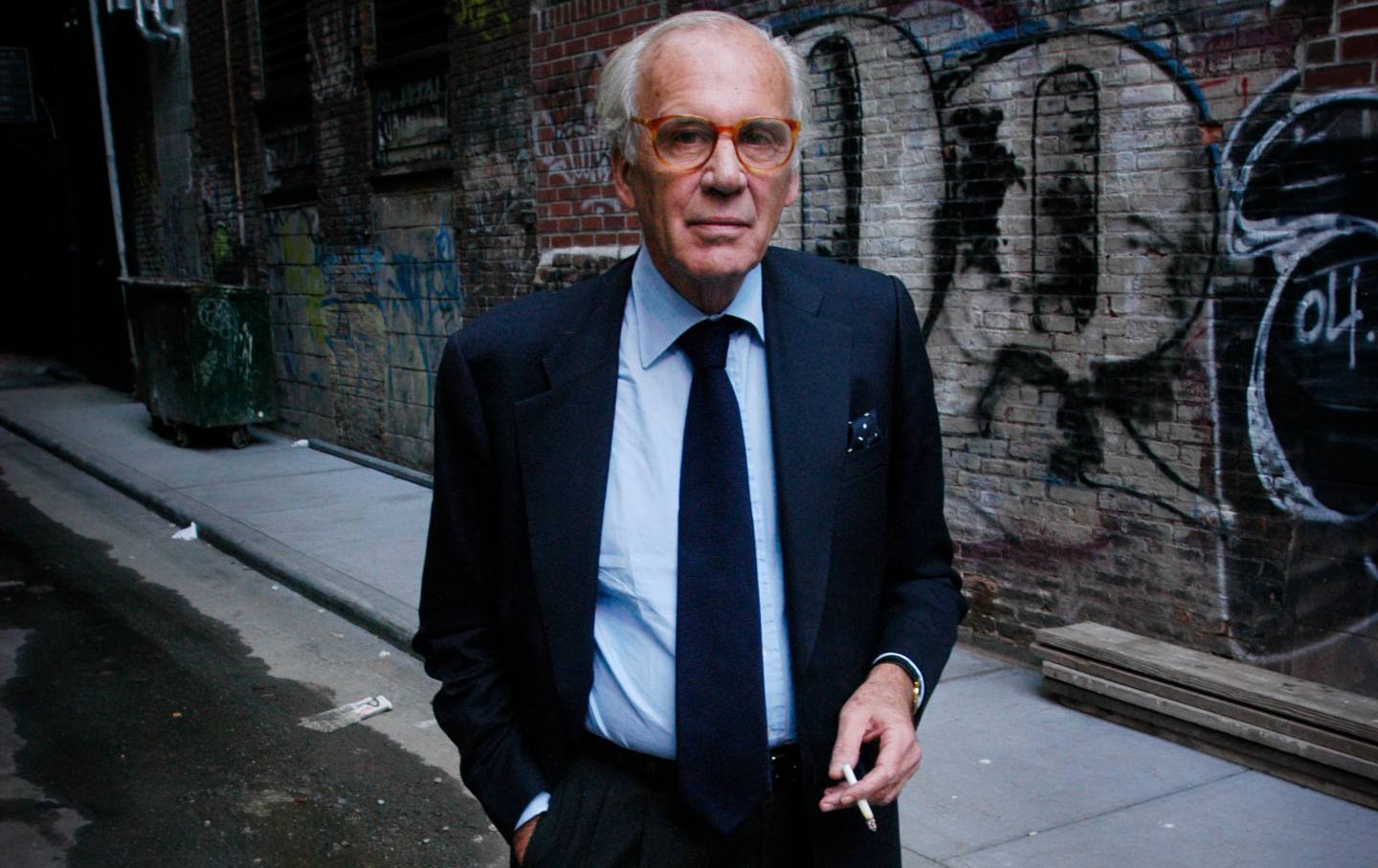
Lewis Lapham Salvaged From History What Was Useful, Beautiful, and True Lewis Lapham Salvaged From History What Was Useful, Beautiful, and True
Writer Lewis H. Lapham, longtime editor of Harper’s Magazine and the founder of Lapham’s Quarterly, died in Rome. He was 89.
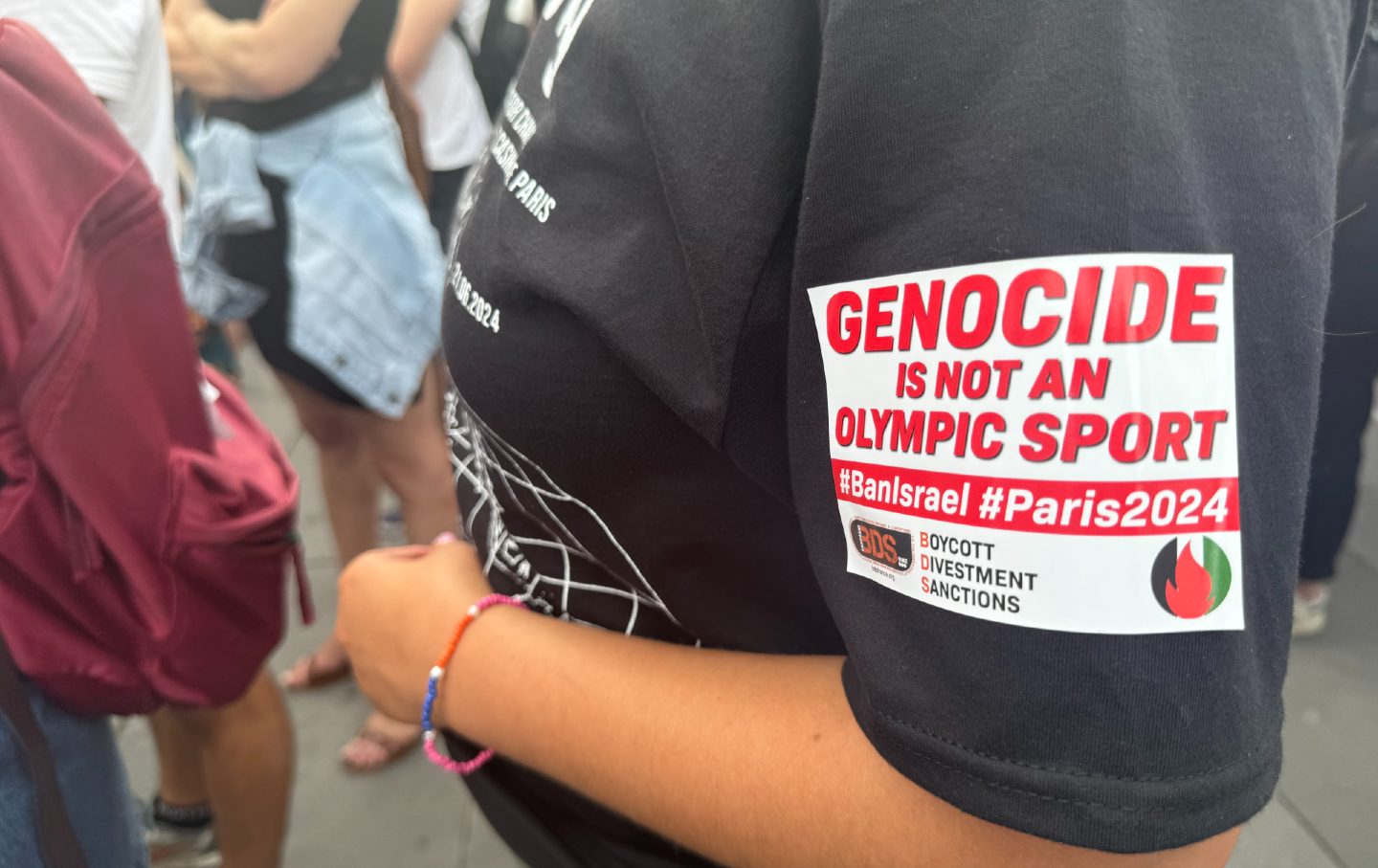
The Paris Olympics Are Kicking Off With Protests The Paris Olympics Are Kicking Off With Protests
“The Olympic Games are profoundly disrupting the lives of French people,” the protesters wrote in a joint statement.“The question then arises: Who benefits from the Games?”
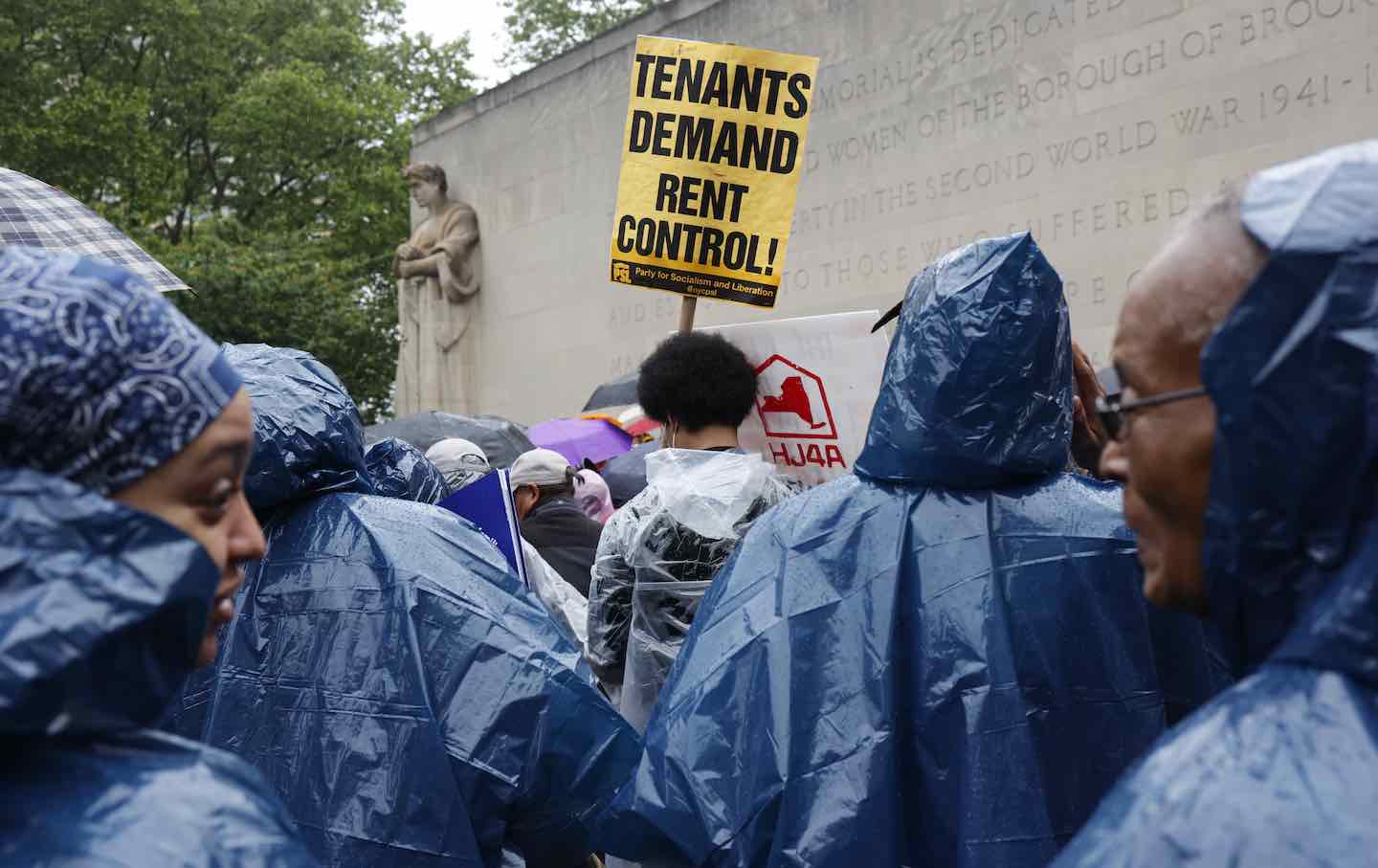
Biden Said Rent Cap. Here’s What Tenant Organizers Say Must Happen Next. Biden Said Rent Cap. Here’s What Tenant Organizers Say Must Happen Next.
The president called on Congress to act, but he could enact a rent stabilization policy with a stroke of his pen. Tenant leaders say they will keep organizing until it happens.

Why There Are No Trans Women Competing at the Paris Games Why There Are No Trans Women Competing at the Paris Games
There are at least two trans nonbinary athletes—Quinn and Nikki Hiltz—and they’re impossible not to cheer for.

The Appalling Social Cleansing of Olympic Paris The Appalling Social Cleansing of Olympic Paris
In the last year, an estimated 12,500 vulnerable Paris residents were forced from their homes.

At My High School, the Library Is for Everything but Books At My High School, the Library Is for Everything but Books
The administration has rebranded our library as a communal space for doing almost everything except reading.

